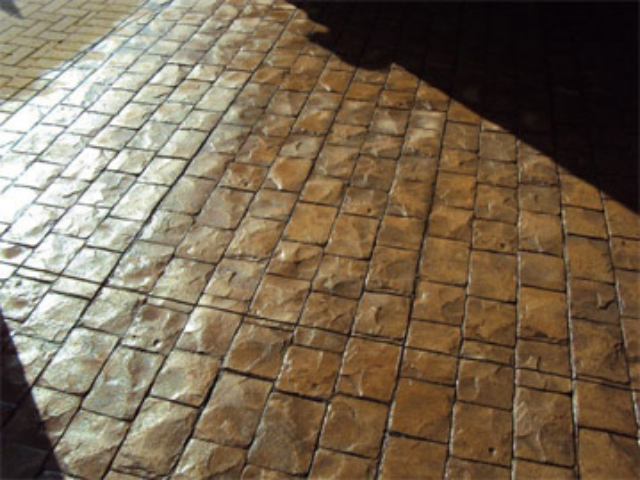Block paving driveways are an excellent choice for homeowners in Coventry looking to improve the aesthetics, durability, and functionality of their driveways. Whether you’re considering a new installation or simply looking to maintain an existing one, this comprehensive guide covers everything you need to know about block paving driveways coventry. From the benefits to the installation process, and maintenance tips, we’ll walk you through it all.
What is Block Paving?
Block paving is a method of surfacing driveways using interlocking blocks, typically made from concrete, clay, or natural stone. The blocks come in a wide variety of colors, shapes, and sizes, allowing homeowners to create custom patterns and designs. Block paving is a popular choice for Coventry driveways because of its durability, versatility, and easy maintenance.
Benefits of Block Paving Driveways
There are many reasons why homeowners in Coventry prefer block paving for their driveways. Here are just a few of the key benefits:
1. Durability and Longevity
Block paving is incredibly durable, designed to withstand the weight of heavy vehicles and resist wear and tear over time. Concrete blocks, in particular, can last for decades, making them a long-term investment.
2. Aesthetic Appeal
Block paving provides a wide range of design possibilities, from traditional herringbone patterns to contemporary layouts. With the variety of colors and textures available, you can match your driveway to your home’s overall style.
3. Easy Maintenance
One of the major advantages of block paving is its ease of maintenance. If a block becomes damaged or cracked, it can be easily replaced without affecting the rest of the driveway. Additionally, weeds and moss can be controlled with periodic cleaning and re-jointing.
4. Flexibility in Repair
Unlike asphalt or concrete driveways, if a section of block paving gets damaged or uneven, you don’t need to resurface the entire area. You can simply remove the damaged blocks and replace them with new ones.
5. Enhanced Drainage
Block paving allows for superior water drainage. Permeable block paving, in particular, allows rainwater to filter through the blocks and into the ground, reducing the risk of flooding and water pooling.
Types of Block Paving Materials
The material you choose for your block paving will have a significant impact on the final look and longevity of your driveway. Here are the most common options:
1. Concrete Blocks
Concrete is one of the most common materials used for block paving in Coventry. Concrete blocks come in various shapes, sizes, and colors, making them a versatile and cost-effective option for your driveway. They’re also highly durable and can withstand heavy traffic.
2. Clay Blocks
Clay blocks have a classic, natural look and are known for their aesthetic appeal. They’re more resistant to fading than concrete blocks, which makes them ideal for long-term outdoor use. Clay paving is slightly more expensive but offers a more premium finish.
3. Natural Stone
Natural stone, such as sandstone, granite, or limestone, offers a premium, elegant finish that adds significant curb appeal. While natural stone is the most expensive option, it’s also the most durable and long-lasting, making it ideal for high-end properties.
4. Permeable Block Paving
Permeable block paving allows water to drain through the joints and into the ground, reducing surface runoff and helping prevent waterlogging. This type of paving is ideal for environmentally-conscious homeowners or areas prone to flooding.
Block Paving Driveway Installation in Coventry
The installation process for block paving involves several steps to ensure the driveway is level, stable, and long-lasting. Here’s an overview of the key steps involved in a professional block paving installation:
Step 1: Initial Consultation
The first step in any block paving driveway project is a consultation with a professional contractor. During this consultation, the contractor will assess the area, discuss design options, and provide a cost estimate. They will also check local planning regulations and advise on any necessary permits.
Step 2: Excavation and Ground Preparation
Once the design is finalized, the area will be excavated to the required depth, usually around 150-200mm, depending on the sub-base material. The existing surface will be removed, and any debris or vegetation will be cleared.
Step 3: Base Layer Installation
A strong sub-base is essential for a long-lasting driveway. The contractor will lay a base layer of crushed stone or gravel, which will then be compacted to create a stable foundation for the block paving.
Step 4: Laying the Blocks
Once the base is prepared, the blocks are laid in the chosen pattern. The blocks should fit tightly together, with joints carefully filled with sand. At this point, the driveway will begin to take shape.
Step 5: Compaction
After the blocks are laid, the surface is compacted using a vibrating plate compactor. This ensures that the blocks are firmly in place and that the surface is even and smooth.

Step 6: Jointing
The final step involves filling the joints between the blocks with fine sand. This sand is swept over the surface and compacted into the gaps to secure the blocks and prevent movement.
Step 7: Sealing (Optional)
While sealing isn’t always necessary, applying a sealant can enhance the color of the blocks and protect them from stains, moss, and weed growth. A professional contractor will advise if sealing is right for your driveway.
Cost of Block Paving Driveways in Coventry
The cost of installing a block paving driveway in Coventry can vary depending on several factors, including the size of the driveway, the material chosen, and the complexity of the design. On average, you can expect to pay between £60 and £120 per square meter for block paving installation.
For example:
- Concrete Block Paving: £60 – £80 per square meter
- Clay Block Paving: £80 – £100 per square meter
- Natural Stone Block Paving: £100 – £120 per square meter
Additional costs may include excavation, base preparation, drainage solutions, and the cost of any decorative finishes.
Maintenance Tips for Block Paving Driveways
Although block paving driveways are low maintenance, they still require periodic care to keep them looking their best. Here are some essential maintenance tips:
1. Regular Cleaning
Sweep the driveway regularly to remove dirt and debris. Use a pressure washer every six months to remove moss, algae, and stubborn stains. Be cautious when using a pressure washer, as too much pressure can dislodge the blocks.
2. Refill Jointing Sand
Over time, the jointing sand between the blocks can be washed away. Refill the joints with fresh sand as needed, particularly after a heavy rainfall or during the winter months.
3. Weed Control
Weeds can grow through the joints between blocks if not properly maintained. Use weed killer or manual methods to remove any weeds. You can also apply a weed-resistant treatment to reduce future growth.
4. Seal the Driveway
Consider resealing the driveway every 2–3 years to protect it from stains and UV damage, especially if you live in an area with heavy rainfall or extreme temperatures.
When to Call a Professional
While minor maintenance can be handled by homeowners, it’s often best to call in a professional for more complex tasks, such as:
- Block replacement
- Base-leveling and re-compaction
- Extensive weed control
- Drainage issues or sinking surfaces
A professional block paving contractor will ensure that repairs are done properly and safely, preserving the integrity of your driveway for years to come.
Conclusion
Block paving driveways are an excellent investment for Coventry homeowners seeking a durable, aesthetically pleasing, and low-maintenance surface. With the right materials, proper installation, and regular maintenance, your block paving driveway will not only enhance the curb appeal of your home but also provide a long-lasting, functional surface for years. Whether you’re installing a new driveway or maintaining an existing one, following the steps outlined in this guide will help ensure the best possible results.


